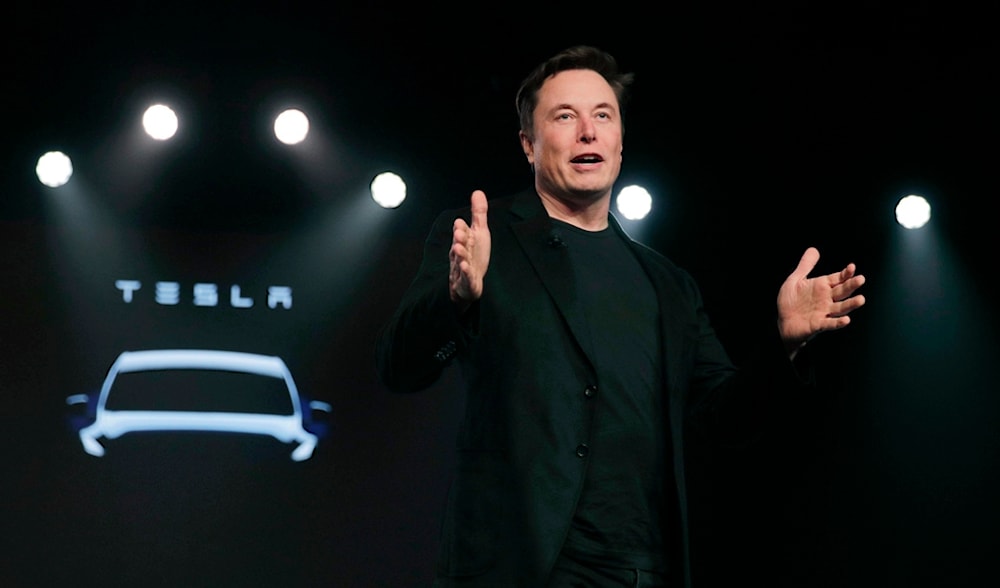Tesla, Musk in crisis as Chinese rivals surge ahead
Tesla faces a sharp decline in sales and stock value as Chinese EV manufacturers, led by BYD, gain a technological edge with faster-charging innovations, threatening the company's market dominance.
-

Tesla CEO Elon Musk speaks before unveiling the Model Y at Tesla's design studio, March 14, 2019, in Hawthorne, Calif. (AP)
Tesla and its CEO, Elon Musk, are facing mounting challenges as the company grapples with a sharp decline in sales and a tumbling stock price, The Spectator reported.
Across both sides of the Atlantic, protests have erupted against what demonstrators have labeled the "Nazi car" and the "Crusader car," further intensifying Tesla's woes.
In Europe, the electric vehicle (EV) giant is witnessing a significant drop in sales, while its stock has plummeted by 53% from its peak following the US presidential election in November.
In January, the EV maker sold only 9,900 units in Europe, a more than 45% drop compared to the same period in 2024, according to the European Automobile Manufacturers’ Association. As a result, its market share of new car registrations fell to 1% from 1.8%.
Over the past five days alone, Tesla’s shares have fallen by an additional 8%, underscoring investor concerns about the company's future.
Even US President Donald Trump’s recent publicized purchase of a Tesla—intended as a show of support—failed to boost investor confidence and may have even backfired, given that many of Tesla’s environmentally conscious customers strongly oppose him.
BYD's Game-Changing Breakthrough
While Tesla struggles, its primary Chinese rival, BYD, is making headlines with a technological breakthrough that could reshape the EV industry.
The company recently unveiled a revolutionary super-fast charging system that can fully charge an electric car in just five minutes, providing a range of 260 miles. This technology, set to be rolled out across China later this year, is twice as fast as Tesla's most advanced charging stations currently available.
The ability to charge an EV as quickly as refueling a gasoline-powered car is expected to be a game-changer in the industry, addressing one of the key concerns holding back mass EV adoption—charging time.
As the market shifts, Tesla risks losing its technological edge to its Chinese competitors.
China's EV Industry Gains Momentum
Beyond BYD, other Chinese automakers are accelerating their push into the EV market. Xiaomi, the smartphone giant, has announced an expansion of its electric sports car production, integrating smart technology to enhance the driving and entertainment experience.
Meanwhile, emerging EV manufacturer XPeng revealed plans to boost production by 300% this year.
This rapid expansion of China’s EV sector poses a serious threat to Tesla’s market dominance. The company, once the undisputed leader in battery technology and vehicle performance, is now facing fierce competition from more affordable and increasingly superior Chinese alternatives.
Tesla’s decline is not merely a result of political controversy surrounding Musk or shifting consumer sentiment—it is a reflection of a deeper problem.
The company is losing its technological supremacy at a critical moment when competitors are making rapid advancements. If the trend continues, Tesla’s reign as the leader of the electric vehicle revolution may soon come to an end, according to The Spectator.
Read more: EV sales in China to overtake traditional cars ahead of the West: FT

 3 Min Read
3 Min Read








